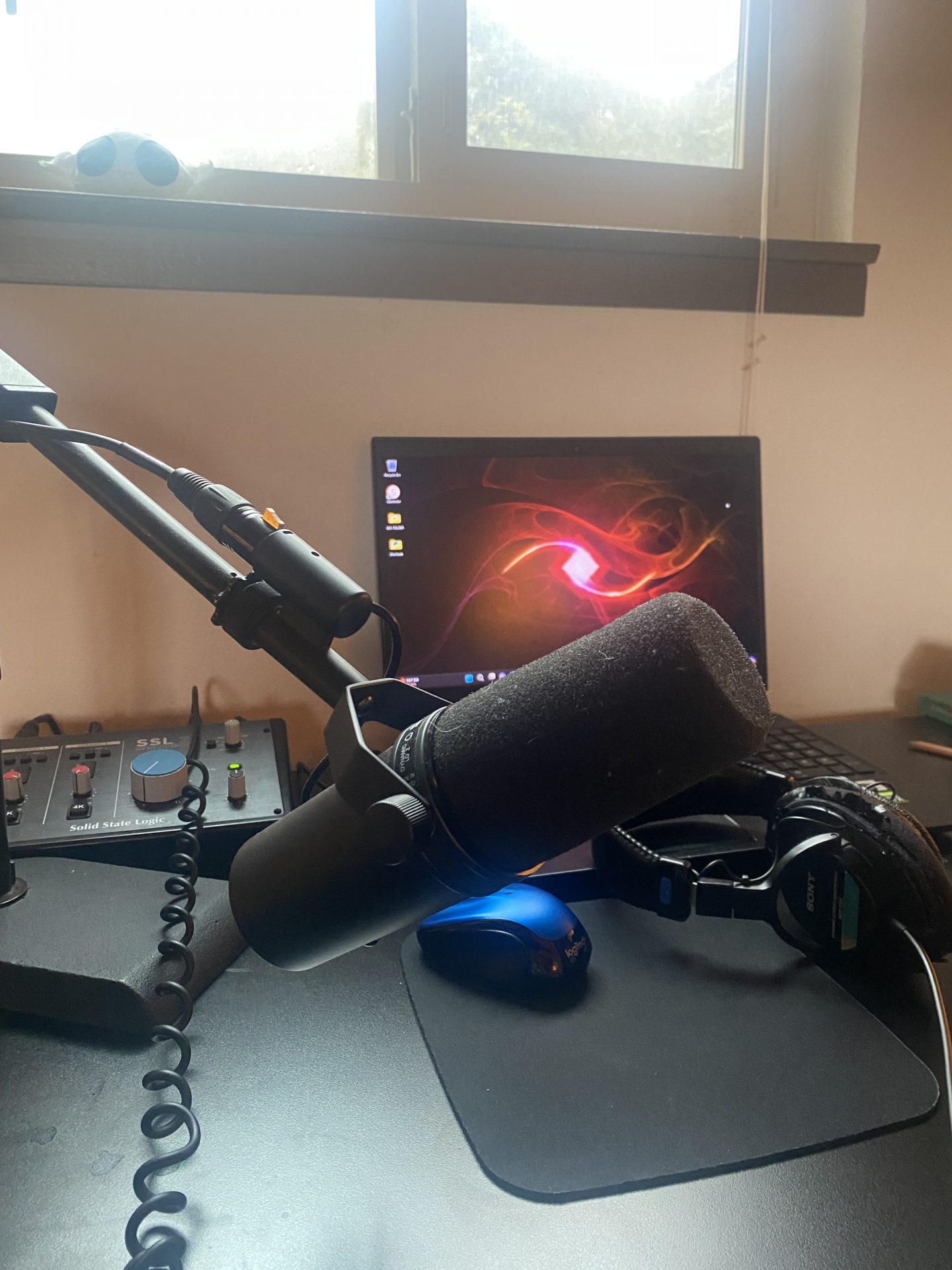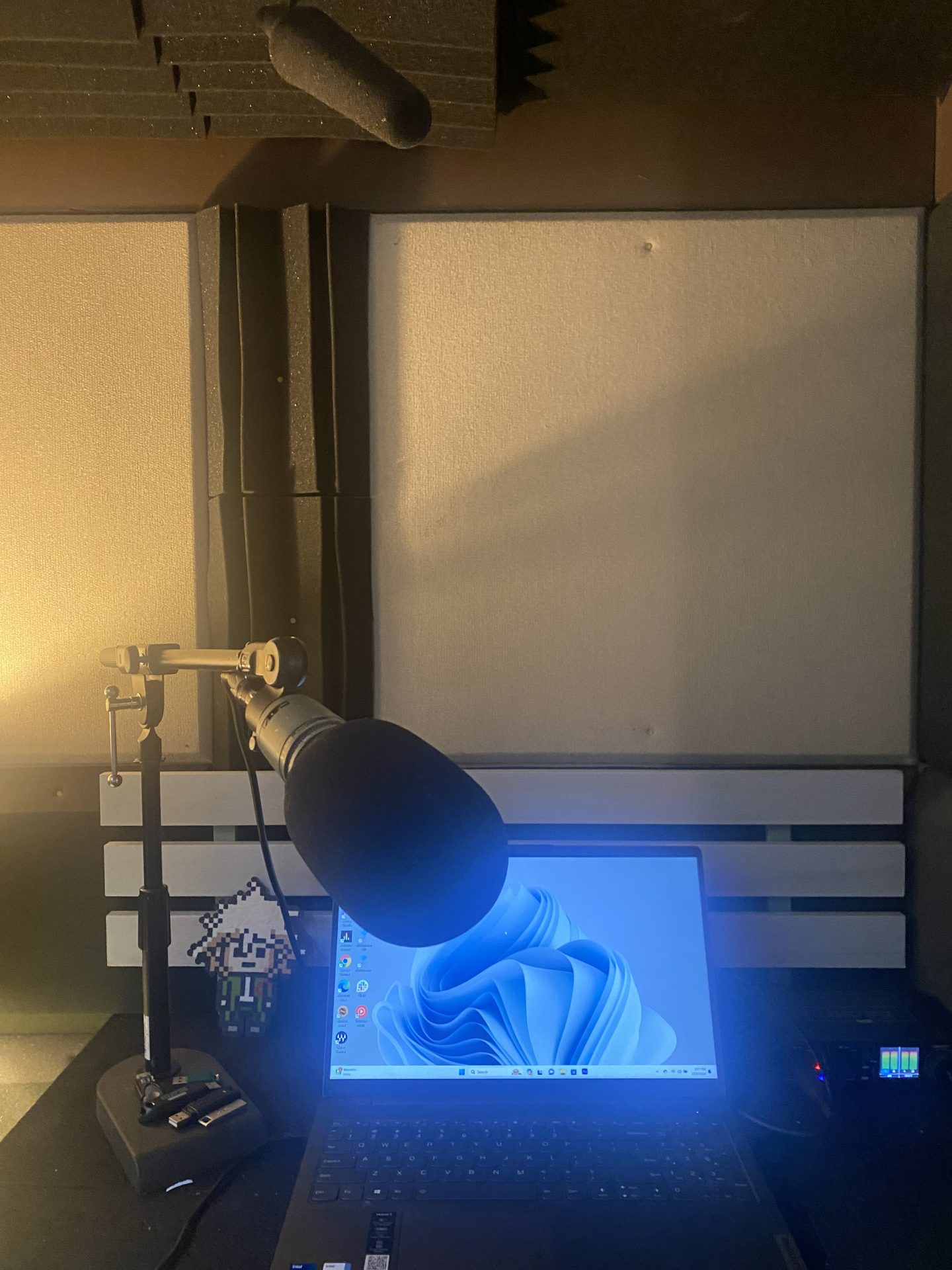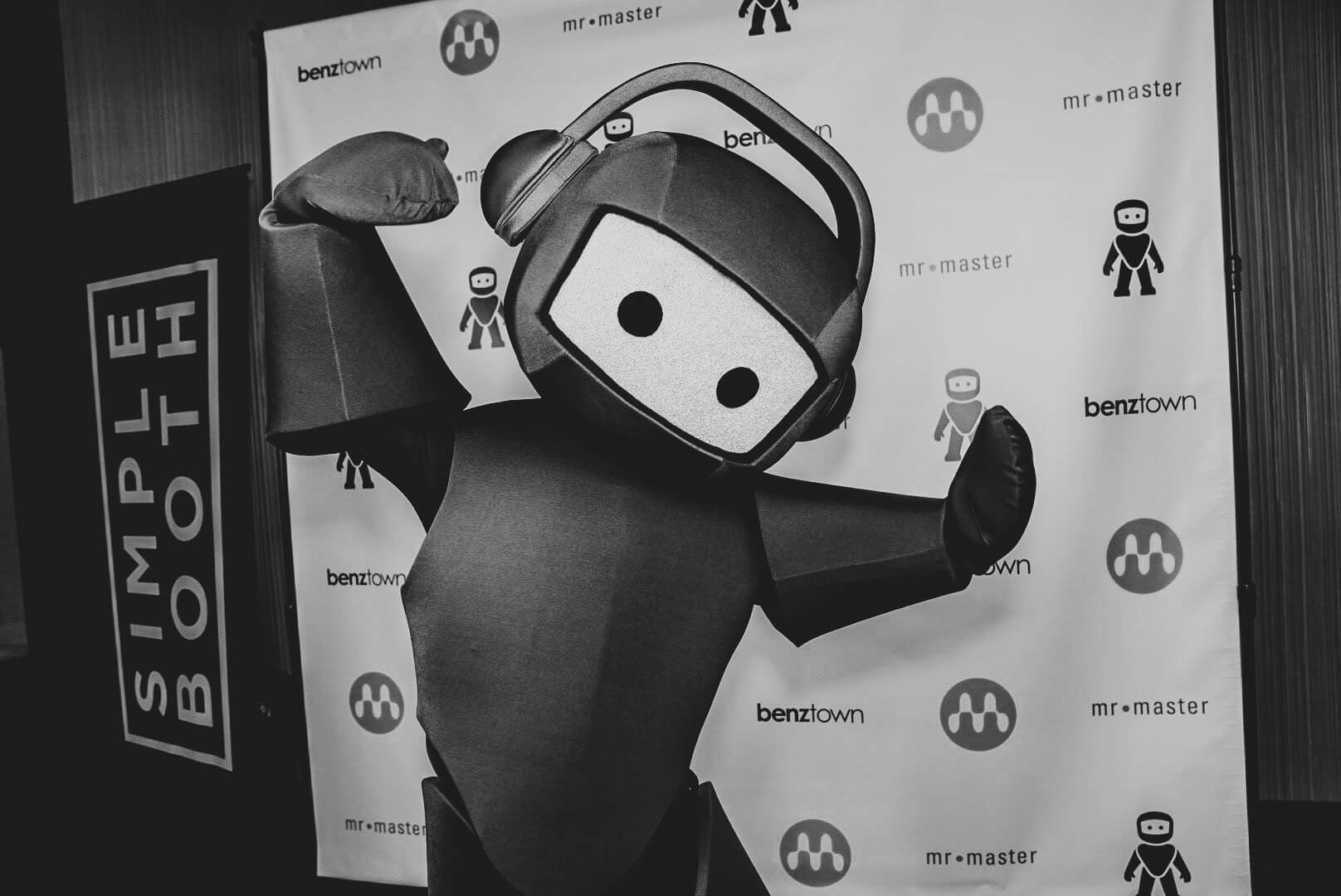Behind the Mic: Jacent Jackson

Jacent Jackson is still trying to make radio fun! His whole deal is being able to make copy sound relatable and fun using writing and storytelling. He has a couple of decades of experience as a programmer writing copy from bullet points if you need to make that sales call and he’s been told he has have a voice that could suit Hot AC, Country, Classic Rock, AAA or whatever.
What radio VO work have you done in the past (stations/markets)?
I became something of an accidental voice over guy. My background is in programming at stations like Live 105/San Francisco, Q101/Chicago, WLUM/Milwaukee and others. I have also been historically really involved in the imaging process, whether in writing or producing or occasionally voicing. When the current PD at WLUM/Milwaukee, Michelle Rutkowski, was ready to make a change in VO, she reached out to me to be their voice. What a trip! I also do much of the imaging production for the station. That led to me doing the voice and imaging for KTNU/Dallas as well, special thanks to Mike Stern for reaching out about that work. I really enjoyed the work and am excited to do more.
What are you up to presently (freelance/on-staff at a station)?
I follow my passions in the audio space. This includes consulting a couple of radio stations with their programming, voicing a couple of radio stations, and doing showrunner type work with editing and sound design in partnership with Dave Beasing at Sound That Brands. He has some tremendous clients that I am honored to work with.
Check out Jacent’s demo!
What do you love about your job?
The variety. I am presented with various challenges and opportunities, and I find it energizing.
How did you get started as a VO actor?
Virtually everything that has come to me in the VO space has been through serendipity. Like many coming up in the radio business, I learned to write, voice, and produce commercial content. I didn’t think of myself as a VO person until others tapped me on the shoulder.
What was your first gig? Any memorable ones since then?
My first opportunity to freelance with VO came from a friend. Pete Schiecke, who has become something of a wizard in the digital world, reached out to me about finding voices for a slate of You Tube channels that he was about to launch. I referred some voices that I thought were great, and he asked me to audition for the team as well, for fun. Since then, I have voiced hundreds of videos across all kinds of subjects. The channels, among them Looper and Grunge, have grown into millions of subscribers, and my work has been heard in billions of plays. It really helped me get used to what it takes to do proper VO.
Who are your VO idols/mentors?
Rena Marie Villano is someone who I was lucky to work with doing local radio and have been able to both participate in and watch her career trajectory in voice work. I think she is amazing and an inspiration. She has also been very generous with advice and mentorship. Among those I have had the pleasure to work with: Ned Spindle is the GOAT. Steve Stone is also a favorite. I was lucky to work with Mike Bratton early in his career and really love his voice and how he uses it in so many places in the audio space. I have never worked with him, but I adore John Frost. He is the gold standard.
If you weren’t doing voiceover, what else do you think you’d be doing for a career?
Probably a therapist. Mental health matters.
What did it feel like the first time you heard your voice on the radio/television?
It was in high school hosting the televised morning announcements for the school. I would beg for copies of the broadcast and play them over and over again. I was totally hooked, borderline obsessed.
How has new technology changed the way you work?
It’s easy to move files around and there are many ways to achieve your goals today that didn’t exist even five years ago. I have noticed it more in podcasting than standard VO, but either way the tools are there.
What gear do you use on the road? In your studio?
I use the same gear at home or on the road, and it’s what everyone else uses. I have a Sennheiser 416 for broadcast work, an EV RE20 for long form narration, and an SM7B for podcasts. My interface is an SSL for narration and podcast, and a MOTU2 for broadcast. I really found the MOTU worked for me on the broadcast work for some reason. Your mileage may vary. I am a windows guy. Lenovo primarily with more onboard RAM than I probably need.


Jacent’s Studio Setup!
Which production system do you use and why?
Oh man. That has been an audacy. (Did I spell that right?) Way back in the day I used Pro-Tools, but it is such a resource hog. Then I landed on Sony Vegas as a lighter windows-based solution until it was bought by Magix. So now I am all in on Reaper for production, with Adobe Audition for straight VO work. For plugins? I have the Izotope series, some Waves material, Sound Toys for fun stuff and Speakerphone for some light sound design.
Have you ever had a voice coach? Would you recommend it?
I have had a few voice coach sessions, and sure! Probably especially important for learning how to take care of your voice.
How do you schedule/prioritize your work? How much time do you spend auditioning for new work?
Depends on the length of time to deliver the job and what the deadlines are. It’s a process that changes all the time.
How do you market your services to potential clients?
I am honored to be associated with Benztown and appreciate the opportunity to do this. Beyond that? Sandwich boards on the freeway. I am still learning that part.
What is the best voice processing trick or voice-over technique everyone should know?
You want processing to sound natural. For example: Consider using a vocal rider before attempting any compression. Deliver in mono unless you are asked to deliver in stereo. For technique: Find your voice before the copy and roll into it. This will help you get out of your head.
Do you have a different approach to reading radio imaging copy as opposed to TV/Radio commercial ads?
Yes. Radio copy should have a consistent character voice and personality as defined by the programming team. Your choices on reads should be believable in that character voice. For TV/Radio Ads, you are selling the person on the service. Your voice should connect to the listener’s needs, then back into the product or service.
Can you offer 3 helpful tips for newbies trying to make it in the voice-over industry?
You can’t go wrong with being curious, being kind, and doing your best.
If you could go back in time and hang out in any decade, which one would you go back to and why?
Probably the 1990s. I really enjoyed that decade overall. Any further back and life is really problematic.
Favorite 2 pizza toppings?
Pepperoni and Sausage.
If you could invite one person to dinner, living or dead, who would it be?
My grandfather. So many questions I didn’t ask.
Connect with Jacent:
;)